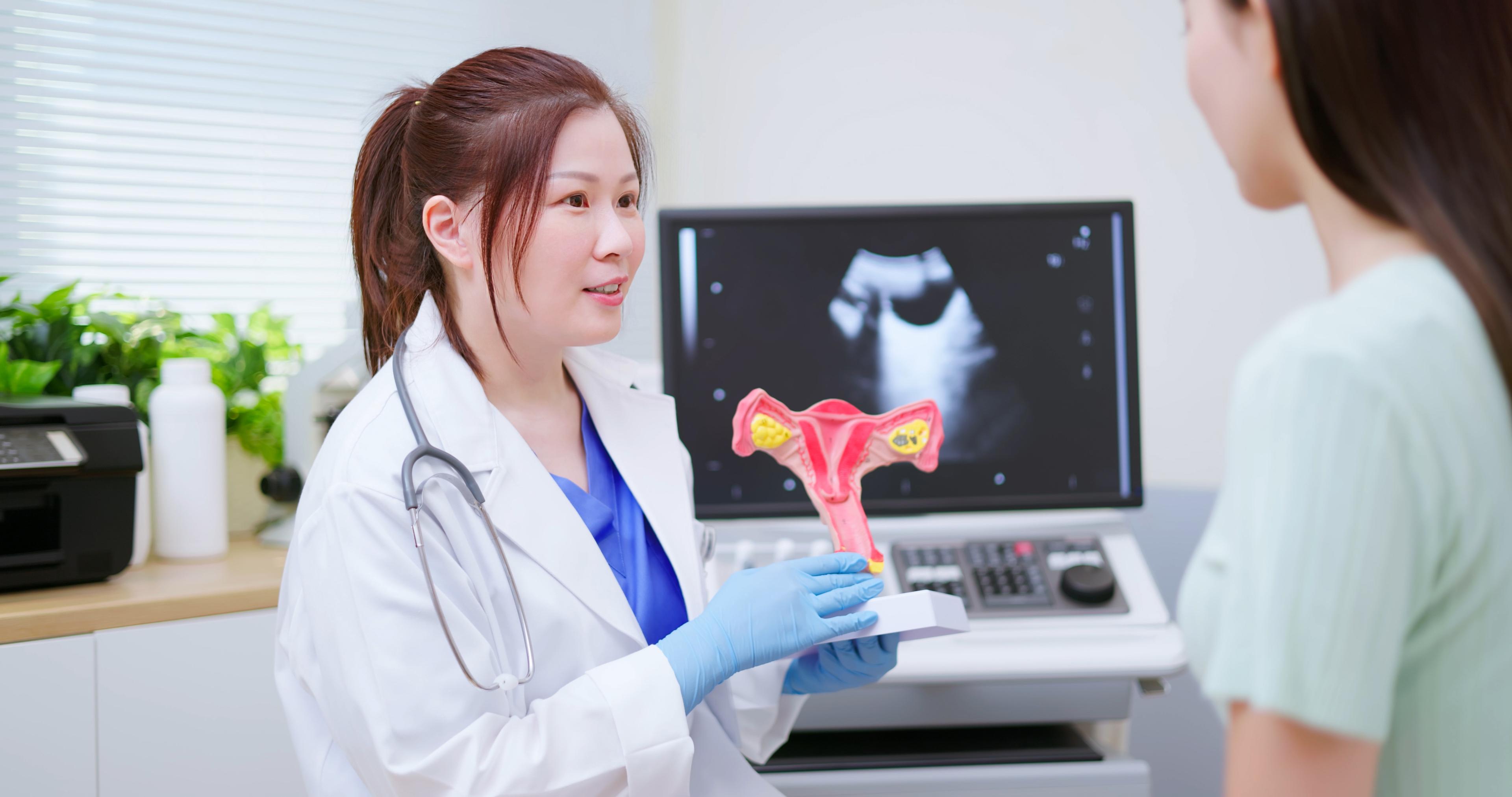What is Polycystic Ovary Syndrome?

Lindsay Knake
| 3 min read
Lindsay Knake is a brand journalist for Blue Cross B...

Up to 15% of women of childbearing age struggle with a hormonal imbalance that can cause infertility called polycystic ovary syndrome (PCOS).
PCOS is the most common cause of infertility because of changes to the ovaries and menstrual cycle, according to U.S. Department of Health and Human Services. The syndrome can cause problems in the ovaries including cysts, lack of egg development and impaired ovulation.
Symptoms of PCOS include:
- Irregular menstrual cycle, either fewer than eight periods per year or periods every 21 days or more often, or no periods at all.
- Hair growth on the face, chin, chest, back and buttocks called "hirsutism," which affects up to 70% of women with PCOS.
- Acne on the face, chest and upper back.
- Thinning hair or hair loss.
- Weight gain or difficulty losing weight.
- Darkening of skin, particularly in the neck, groin and underneath breasts.
Women typically find out they have PCOS in their 20s and 30s when they have problems getting pregnant or have irregular menstrual cycles according to the Cleveland Clinic. Although the causes of PCOS are not completely understood, factors may include genetics, unusually elevated levels of hormones called androgens or high levels of insulin.
Complications of PCOS can include:
- Infertility
- Gestational diabetes
- Pregnancy-induced high blood pressure
- Type 2 diabetes or prediabetes
- Miscarriage or premature birth
- Sleep apnea
- Depression, anxiety and eating disorders
- Nonalcoholic steatohepatitis, a severe liver inflammation caused by fat buildup in the liver
- Metabolic syndrome, a cluster of conditions including high blood pressure, high blood sugar and unhealthy cholesterol or triglyceride levels that increase your risk of cardiovascular disease
- Endometrial cancer
Although both PCOS and endometriosis can cause ovarian cysts and infertility, the two conditions are not the same. Endometriosis is a condition that causes the lining of the uterus to grow on ovaries, vagina or fallopian tubes, and rarely the lining of the abdomen, pelvis, bladder, ureters, intestines, rectum and diaphragm.
How is PCOS treated?
PCOS is not curable, but there are several methods to manage PCOS depending on if you are trying to get pregnant or not.
To manage it and prevent pregnancy, options include:
- Hormonal birth control
- Medications to block androgens
- Insulin-sensitizing medicine
- Nutritious diet to have a positive effect on insulin levels
While PCOS is one of the most common causes of infertility, it is treatable. Common treatments of infertility include:
- Drugs to induce ovulation
- Surgery to remove tissue in your ovaries that produces androgen hormones
- In vitro fertilization (IVF)
Talk to your doctor about treatments to help you ovulate.
Blue Cross and Blue Care Network members can find a doctor near them by using the Find a Doctor tool, available on both bcbsm.com and the BCBSM mobile app.
Image: Getty Images
Related:





